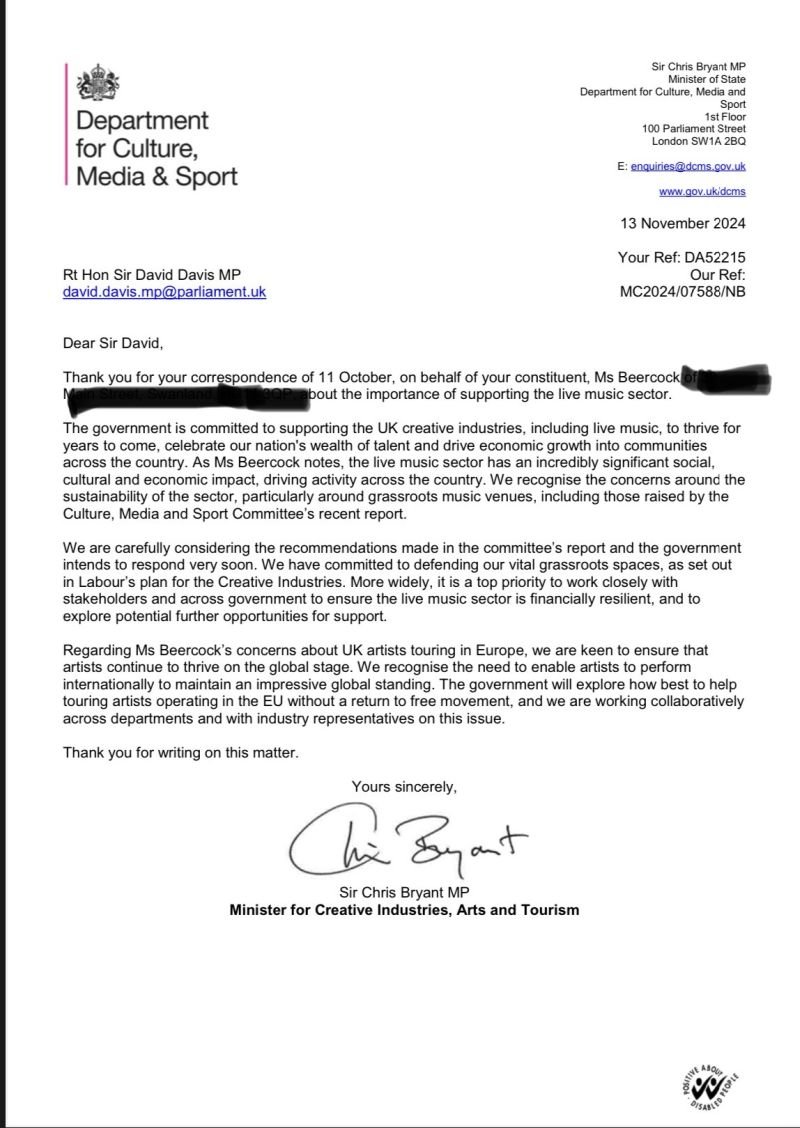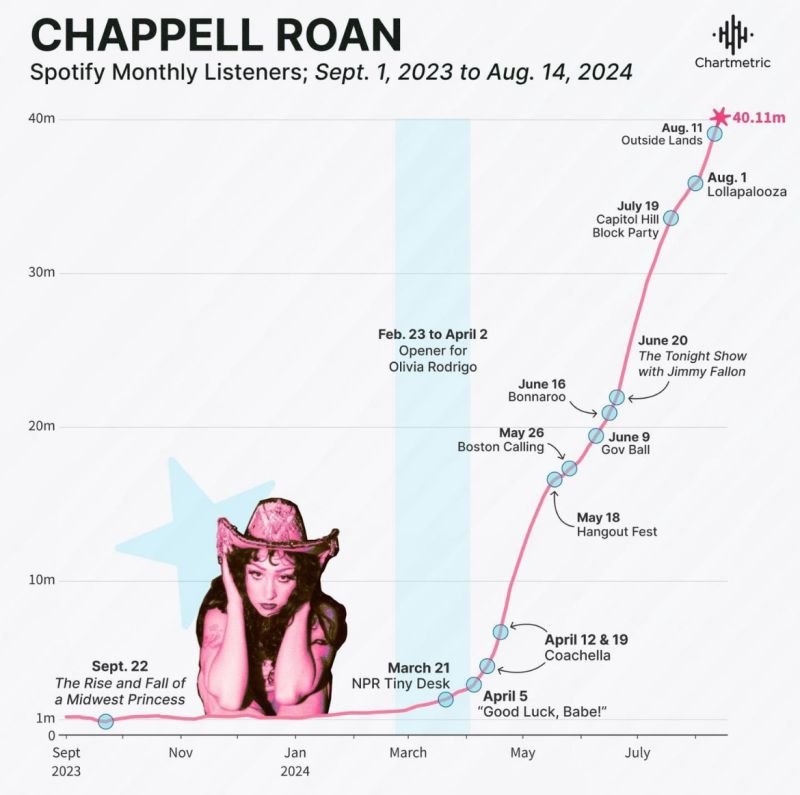13th November 2024
Government Acknowledges Concerns and Promises Support for Grassroots Venues and Touring Artists
Recently, I took the opportunity to write to my MP to voice concerns about the serious challenges facing the UK’s live music sector. From the struggles of grassroots venues to the barriers that UK artists face when touring Europe, it’s clear that the industry is in a critical state and requires immediate attention.
The live music sector has long been a cornerstone of our cultural landscape, but it is now under threat from a variety of factors. Grassroots venues—the incubators of emerging talent and community engagement—are fighting to survive, while UK artists are burdened with costly visas and transport issues that make touring Europe increasingly difficult and expensive. These barriers not only affect the livelihoods of artists but also the vibrancy and diversity of live music that the UK is known for.
A Response from the Secretary of Culture, Media, and Sport
I was pleased to receive a response from the Secretary of Culture, Media, and Sport, who acknowledged these concerns and reiterated the government’s commitment to supporting live music. The government recognises the challenges and has outlined a focus on tackling the issues facing the sector, including grassroots venue survival and the complexities of touring.
The upcoming response to the Culture, Media, and Sport Committee’s report is expected to include tangible measures to address the needs of grassroots venues. It’s encouraging to see that there is an understanding of the importance of these venues to both the music industry and local communities.
Addressing the Challenges for Touring Artists
Equally important is the government’s focus on touring challenges, particularly the visa and transport issues affecting smaller acts touring Europe. These logistical barriers have made it more difficult and expensive for UK artists to perform abroad, thus limiting their ability to expand their reach and grow their careers. The government’s commitment to resolving these issues is a step in the right direction, but real, actionable solutions are needed to ensure that UK talent can continue to perform and connect with international audiences.
Looking Ahead: Actionable Steps for a Thriving Future
As the situation stands, the future of the UK’s live music industry depends on swift and decisive action. I am optimistic that the upcoming response will bring forward the necessary support for grassroots venues and offer practical solutions for artists facing barriers to touring.
We need to ensure that the government’s actions align with the challenges that the sector faces and lead to real change. Only through tangible support and proactive steps can we ensure a thriving future for the UK’s live music industry, securing its place as a global leader in music and culture.
I look forward to seeing concrete measures from the government to help secure the future of live music in the UK, ensuring that the next generation of talent has the opportunity to thrive.







